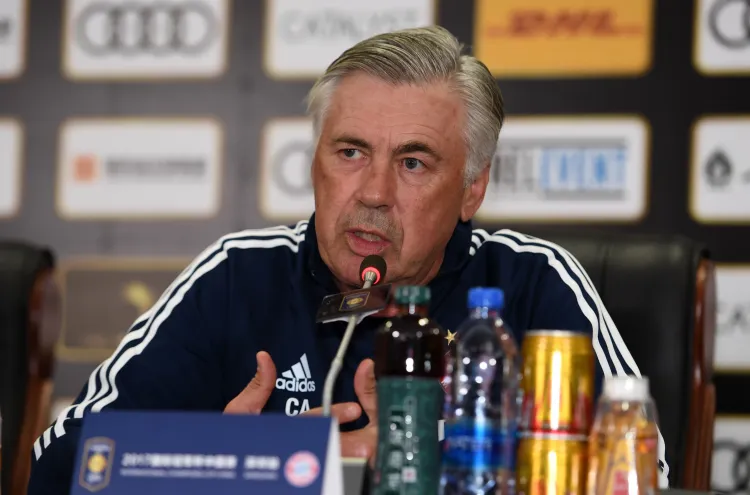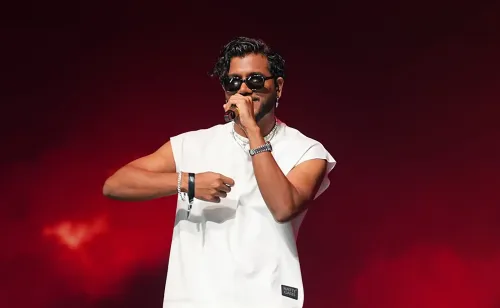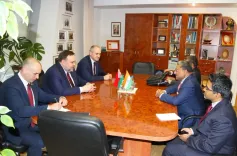Is Ancelotti's Appointment a Turning Point for Brazil's Football?

Synopsis
Key Takeaways
- Ancelotti's appointment marks a crucial turning point for Brazil's national football team.
- The CBF aims to restore trust and improve the team's performance ahead of the 2026 World Cup.
- His extensive experience could lead to a revitalization of Brazil's football identity.
- Ancelotti's financial package underlines his importance to the CBF's future plans.
- The Brazilian media reflects cautious optimism regarding the team's prospects.
Rio de Janeiro, May 13 (NationPress) The Brazilian media expressed a sense of relief and optimism following Carlo Ancelotti's appointment as the head coach of the men's national football team. His arrival is seen as a much-anticipated turning point for a squad seeking its identity.
Folha de S. Paulo referred to Ancelotti as "the Brazilian Football Confederation's choice to rectify the team at the conclusion of a turbulent cycle".
The publication noted that this seasoned coach has just over a year to steer a team that has been adrift since the last World Cup, with reference to the upcoming 2026 edition of this prestigious event. It emphasized that the 65-year-old's presence was essential to "forge some unity in a national team laden with challenges, governed by a federation facing similar dilemmas".
Folha additionally highlighted that CBF president Ednaldo Rodrigues had dedicated two years to attracting the former Real Madrid manager. Ancelotti's selection, celebrated by Rodrigues as a "signal to the world that we are resolute in our quest to reclaim the pinnacle of success", also served as a tactical maneuver to bolster his own position amid allegations of corruption and irregularities, according to reports from Xinhua.
Globo Esporte underscored the urgency of the choice, stating that "Rodrigues had no time to waste". The outlet revealed that Ancelotti had reached out to Brazilian star Neymar to gauge the forward's willingness to be part of his plans, and also contacted midfielder Casemiro—whom he previously coached at Real Madrid—as well as other trusted associates to assist in his decision-making.
Moreover, the former Parma, Roma, and AC Milan player, who transitioned to coaching in 1995, has already begun preparations for Brazil's June World Cup qualifiers against Ecuador and Paraguay, compiling a list of potential new squad members.
O Globo focused on the financial and logistical aspects of the agreement, reporting that "over the 14-month contract, the coach will earn around 4.5 million reais (approximately 800,000 U.S. dollars) per month", positioning Ancelotti as the highest-paid national team coach globally.
The paper noted that he would receive a bonus of 5.5 million dollars if Brazil triumphs in the 2026 World Cup, in addition to other perks such as a CBF-funded apartment in Rio, international health insurance, and access to a private jet for international journeys.
In Estadao, columnist Mauro Beting commended Ancelotti’s footballing legacy and compared his approach to that of Brazil's past World Cup-winning coaches.
"The sixth title is now more within reach," Beting stated. He characterized Ancelotti as "low profile, discreet, respectful, and highly regarded," emphasizing his skill in creating cohesive, family-like teams.
Across Brazil's leading newspapers, the sentiment conveyed cautious yet distinct optimism that with one of the most decorated coaches in world football at the helm, the Selecao may have taken a significant stride towards reclaiming its status at the top of the global game.









